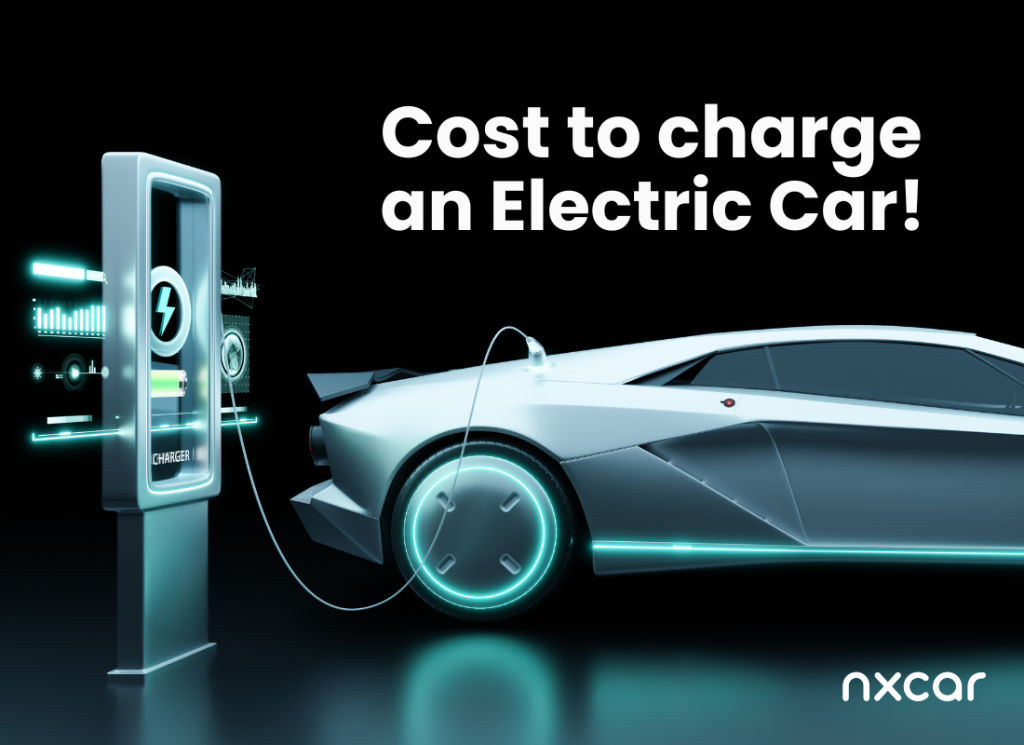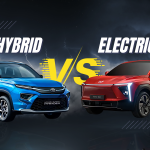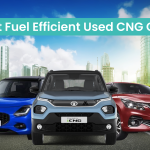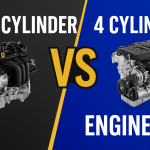With the rising popularity of electric vehicles in India, the question on everyone’s mind is “How Much Does It Cost to Charge an Electric Car?” While the environmental benefits of owning an EV are widely celebrated, many prospective buyers hesitate when it comes to the unknowns of Electric Car Charging Cost. After all, it’s one thing to invest in a cleaner, greener future, but another to understand the impact it might have on your monthly expenses.
The truth is, the cost of charging your electric vehicle can vary significantly depending on several factors: where you charge, the type of EV you own, and, of course, the fluctuating electricity rates across regions. The landscape is made even more complicated with the availability of both home and public charging stations, each carrying its own price tag. And as more Indians consider making the switch to electric, the looming question persists—will the cost of charging outweigh the savings on petrol?
But don’t worry, this doesn’t have to be a deal-breaker. The good news is that understanding how to calculate your Electric Car Charging Cost is easier than you think. By looking at factors like energy consumption and power tariffs, you can start to get a clearer picture of the actual cost involved. In this article, we’ll break it down for you, helping you make an informed decision that’s not only eco-friendly but also pocket-friendly.
Factors Affecting Charging Costs
When it comes to understanding “How Much Does It Cost to Charge an Electric Car?”, there are several key factors that can dramatically influence your overall Electric Car Charging Cost. First and foremost, the electricity rate in your area plays a significant role. Different states in India have varying tariffs, and the time of day you charge can further impact the cost due to peak and off-peak pricing structures.
The type of charger you use also affects the cost. Fast chargers, typically found at public stations, charge at a higher rate compared to home chargers due to their increased energy output. However, charging at home generally means a slower process but a more economical option in the long run.
Another factor is the capacity of your electric vehicle’s battery. A larger battery requires more power, which translates into higher charging costs. Similarly, the charging efficiency of your car, including any potential energy loss during the process, can also add to the total expenditure.
Lastly, the location of the charging station matters. Public charging stations in high-demand areas often carry premium fees, while government-run stations may offer more affordable rates, making location a critical element when calculating Electric Car Charging Cost.
- Electricity Rates: Electricity rates significantly impact Electric Car Charging Cost. In India, rates vary across states and can change based on peak and off-peak hours. Areas with higher tariffs will naturally result in increased charging costs. Understanding local electricity pricing can help you estimate the true cost of charging your EV more accurately.
- Charging Location: The charging location plays a crucial role in determining the Electric Car Charging Cost. Charging at public stations, especially those in high-demand areas, can be more expensive due to premium fees. On the other hand, home charging tends to be more cost-effective, though it may take longer to fully charge the vehicle.
- Charging Speed: Charging speed plays a significant role in determining the Electric Car Charging Cost. At home, using a standard 3.3 kW charger, you can expect to fully charge an EV in about 8 to 12 hours, depending on battery size. This slower method is more economical, with costs around ₹8-₹10 per unit of electricity. However, fast chargers, which deliver up to 50 kW, can charge the same EV in just 1 to 2 hours but come with a higher cost, often ranging from ₹15-₹25 per unit at public stations.
- Vehicle Charging Capacity: Charging speed affects both time and Electric Car Charging Cost. At home, a 7.2 kW AC charger takes 4-5 hours to charge a 30 kWh battery, costing ₹240-₹300. A 120 kW DC fast charger can charge the same battery in 30-60 minutes, but at a higher cost of ₹450-₹750.
- Battery Capacity: Battery capacity plays a critical role in determining the Electric Car Charging Cost. For instance, the Tata Tiago.ev comes with a 24 kWh battery, and charging it fully would cost around ₹240-₹300 at home, depending on the local electricity rate. Mid-range EVs like the Tata Nexon EV Max have a 40.5 kWh battery, and a full charge would cost ₹400-₹450. In contrast, premium EVs such as the Mahindra BE 6, with its 79 kWh battery, could cost ₹790-₹800 for a full charge. Larger batteries demand more electricity, making it essential to consider battery size when calculating overall charging costs.
Calculating the EV Charging Cost
When considering an electric vehicle (EV), one of the key questions that often arises is, “How Much Does It Cost to Charge an Electric Car?” Understanding the Electric Car Charging Cost can help you budget effectively and avoid surprises. The math behind calculating these costs is relatively straightforward, but there are a few factors to consider.
Steps to Calculate EV Charging Cost:
- Know Your Vehicle’s Battery Capacity:
The battery size directly impacts the amount of electricity required to charge your car. EV batteries typically range from 24 kWh to 100 kWh. - Understand the Electricity Rate:
The cost per unit of electricity (measured in kilowatt-hours or kWh) varies across India, but the average cost is around ₹8-₹10 per kWh. - Estimate the Charging Time:
Depending on the type of charger (home charger or fast charger), charging speed will differ. For example, a home charger (7.2 kW) typically charges at 3-5 hours for a full charge, while a fast charger (50-120 kW) can do so in under 2 hours. - Use the Formula:
To calculate the cost of charging, use the following formula:Charging Cost=Battery Capacity (kWh)×Electricity Rate (₹/kWh)\text{Charging Cost} = \text{Battery Capacity (kWh)} \times \text{Electricity Rate (₹/kWh)}
Example Calculations:
| Vehicle Model | Battery Capacity | Electricity Rate (₹/kWh) | Charging Cost (₹) |
|---|---|---|---|
| Tata Tiago.ev | 24 kWh | ₹10 | ₹240 |
| Tata Nexon EV Max | 40.5 kWh | ₹10 | ₹405 |
| Mahindra BE 6 | 79 kWh | ₹10 | ₹790 |
Key Takeaways:
- A smaller battery like the Tata Tiago.ev (24 kWh) would cost around ₹240 to charge fully at home.
- A larger battery like the Mahindra BE 6 (79 kWh) could cost ₹790, depending on the electricity rate.
By understanding these basic calculations, you can easily estimate your Electric Car Charging Cost and plan your EV ownership budget.
Electric Vehicles in India: Range Data and Running Cost
| Vehicle Model | Battery Capacity (kWh) | Real-World Range (km) | Electricity Rate (₹/kWh) | Charging Cost (₹) | Running Cost / KM (₹) |
|---|---|---|---|---|---|
| Vayve Mobility Eva (Base) | 12.6 | 122.5 (est) | ₹8 | ₹100.80 | ₹0.82 |
| MG Comet EV | 17.3 | 230 | ₹8 | ₹138.40 | ₹0.60 |
| Vayve Mobility Eva (Long Range) | 18 | 175 (est) | ₹8 | ₹144.00 | ₹0.82 |
| Tata Tiago EV MR (Medium Range) | 19.2 | 150 | ₹8 | ₹153.60 | ₹1.02 |
| Tata Tiago EV LR (Long Range) | 24 | 210 | ₹8 | ₹192.00 | ₹0.91 |
| Tata Punch EV (Base) | 25 | 235 | ₹8 | ₹200.00 | ₹0.85 |
| Tata Nexon EV MR (Medium Range) | 30 | 210 | ₹8 | ₹240.00 | ₹1.14 |
| Tata Punch EV (Long Range) | 35 | 310 | ₹8 | ₹280.00 | ₹0.90 |
| MG Windsor EV (Base) | 38 | 232.4 (est) | ₹8 | ₹304.00 | ₹1.31 |
| Hyundai Creta Electric (Base) | 42 | 273 (est) | ₹8 | ₹336.00 | ₹1.23 |
| Tata Nexon EV LR (Long Range) | 45 | 342.3 (est) | ₹8 | ₹360.00 | ₹1.05 |
| Tata Curvv EV (Base) | 45 | 301 (est) | ₹8 | ₹360.00 | ₹1.20 |
| Tata Nexon EV (Top Variant) | 46.08 | 342.3 (est) | ₹8 | ₹368.64 | ₹1.08 |
| Hyundai Creta Electric (Long Range) | 51.4 | 331.1 (est) | ₹8 | ₹411.20 | ₹1.24 |
| MG Windsor EV (Long Range) | 52.9 | 314.3 (est) | ₹8 | ₹423.20 | ₹1.35 |
| Tata Curvv EV (Long Range) | 55 | 351.4 (est) | ₹8 | ₹440.00 | ₹1.25 |
| Mahindra BE 6 (Base) | 59 | 389.9 (est) | ₹8 | ₹472.00 | ₹1.21 |
| Mahindra XEV 9e (Base) | 59 | 379.4 (est) | ₹8 | ₹472.00 | ₹1.24 |
| Tata Harrier EV (Base) | 65 | 353.5 (est) | ₹8 | ₹520.00 | ₹1.47 |
| Tata Harrier EV (Long Range) | 75 | 492.5 | ₹8 | ₹600.00 | ₹1.22 |
| Mahindra BE 6 (Long Range) | 79 | 478.1 (est) | ₹8 | ₹632.00 | ₹1.32 |
| Mahindra XEV 9e (Long Range) | 79 | 459.2 (est) | ₹8 | ₹632.00 | ₹1.38 |
| Kia EV6 | 84 | 464.1 (est) | ₹8 | ₹672.00 | ₹1.45 |
| BMW i7 | 101.7 | 437.5 (est) | ₹8 | ₹813.60 | ₹1.86 |
Is EV Charging Cheaper Than Petrol, Diesel, or CNG?
As electric vehicles (EVs) continue to gain popularity in India, a key question remains: How Much Does It Cost to Charge an Electric Car? The debate over whether Electric Car Charging Cost is cheaper than running a petrol, diesel, or CNG vehicle is becoming more pertinent as fuel prices continue to rise. To answer this, let’s break down the real-world running costs for each type of vehicle and compare.
Running Costs: Petrol, Diesel, CNG vs. EV
In India, fuel prices are continually fluctuating, and the running cost of conventional vehicles is largely dependent on fuel efficiency. Below is a comparison of running costs for different fuel types, including the cost of charging an EV.
Fuel Costs in Delhi:
- Petrol: ₹96.72 per liter
- Diesel: ₹89.62 per liter
- CNG: ₹76.59 per kg
- Electricity: ₹8 per unit (kWh)
Fuel Efficiency Comparison:
| Vehicle Type | Fuel Type | Fuel Efficiency | Cost per km (₹) |
|---|---|---|---|
| Petrol Car | Petrol | 15 km/liter | ₹6.45 |
| Diesel Car | Diesel | 18 km/liter | ₹5.00 |
| CNG Car | CNG | 20 km/kg | ₹3.83 |
| Electric Car | Electricity | 6 km/kWh | ₹1.33 |
How Are These Numbers Calculated?
To make things easier, here’s a breakdown of the Electric Car Charging Cost and the running costs of petrol, diesel, and CNG vehicles:
- Petrol Vehicle:
Given the price of petrol is ₹96.72 per liter, and the car runs 15 km on one liter, the cost per kilometer is:
96.7215=₹6.45 per km\frac{96.72}{15} = ₹6.45 \, \text{per km}
- Diesel Vehicle:
With diesel at ₹89.62 per liter and a fuel efficiency of 18 km/l, the cost per kilometer comes to:
89.6218=₹5.00 per km\frac{89.62}{18} = ₹5.00 \, \text{per km}
- CNG Vehicle:
CNG costs ₹76.59 per kg, and the car runs 20 km on 1 kg of CNG, so the cost per kilometer is:
76.5920=₹3.83 per km\frac{76.59}{20} = ₹3.83 \, \text{per km}
- Electric Vehicle:
Assuming an electric car has a range of 6 km per kWh, and the cost of electricity is ₹8 per unit, the Electric Car Charging Cost per kilometer is:
86=₹1.33 per km\frac{8}{6} = ₹1.33 \, \text{per km}
The Verdict
From these numbers, it’s clear that Electric Car Charging Cost is far cheaper than running a petrol, diesel, or CNG vehicle. Here’s the comparison for running costs:
- Petrol: ₹6.45 per km
- Diesel: ₹5.00 per km
- CNG: ₹3.83 per km
- Electric Vehicle: ₹1.33 per km
Key Takeaways:
- EVs are significantly cheaper to run than petrol, diesel, and CNG vehicles.
- The Electric Car Charging Cost is just a fraction of what you would spend on conventional fuels.
- Over time, this translates to substantial savings on fuel costs, making EVs an attractive option for long-term savings and a cleaner environment.
In conclusion, when it comes to the question of How Much Does It Cost to Charge an Electric Car?, the answer is clear: EVs provide a far more cost-effective solution compared to traditional fuel-powered vehicles in India.
What are the Costs of EV Charging at Home?
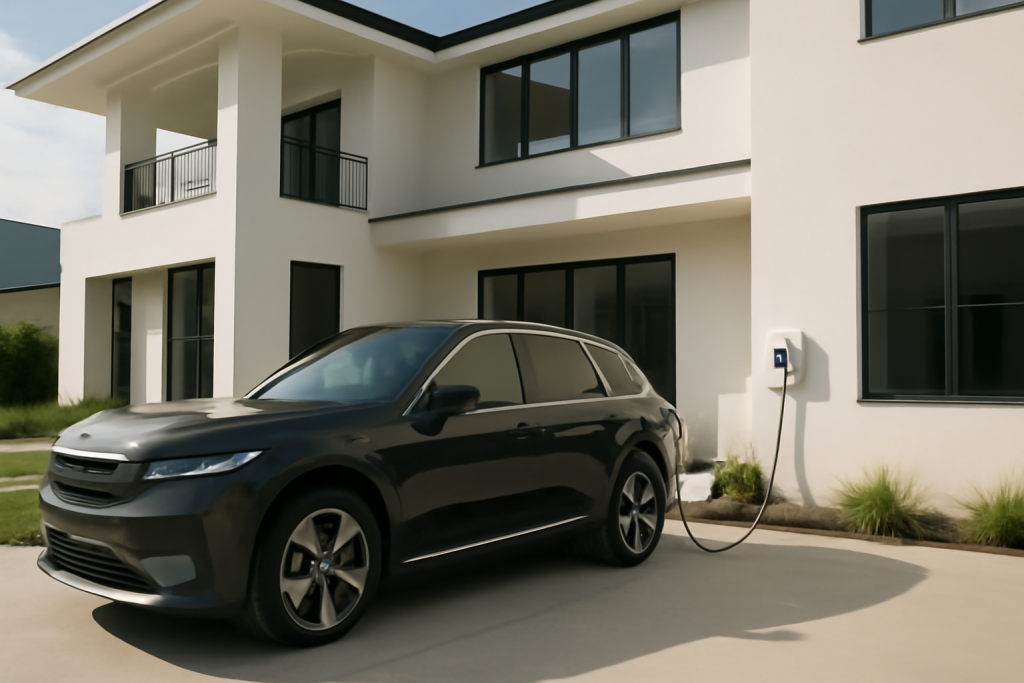
As electric vehicles (EVs) gain traction in India, a common concern for potential buyers is, “How Much Does It Cost to Charge an Electric Car?” Charging your EV at home is one of the most convenient and cost-effective ways to keep your vehicle powered. However, there are several factors to consider when estimating the Electric Car Charging Cost.
In India, the average electricity rate is about ₹8 per kWh. Most EVs available today, depending on the model, come with battery capacities ranging from 20 kWh to 80 kWh. For example, if you have a 30 kWh battery in your EV, charging it fully at home would cost approximately ₹240 (30 kWh × ₹8). For larger batteries, such as the 79 kWh ones found in premium models, the cost of a full charge would be around ₹632.
Additional Costs to Consider:
While charging at home is affordable, there are some additional costs you might encounter:
- Standard vs. Higher Capacity Chargers: The chargers that come with most EVs are typically standard home chargers that operate at a lower power output (3.3 kW or 5 kW). If you want faster charging, such as with a 7.2 kW charger, you will either need to purchase an upgraded charger, which can be from the OEM or a third-party supplier, adding to the cost. These chargers can cost anywhere from ₹15,000 to ₹40,000, depending on the capacity and brand.
- Electrical Upgrades: You might also need to upgrade your home’s electrical system to handle the extra load of a high-capacity charger. The cost of these upgrades can range from ₹5,000 to ₹20,000, depending on your home’s current setup and local conditions.
Pros and Cons of Charging at Home:
Pros:
- Cost-Effective: Generally, charging at home is cheaper than using public charging stations.
- Convenience: You can charge your car overnight while you sleep, ensuring it’s ready to go in the morning.
- No Queues: You avoid the inconvenience of waiting in line at public charging stations.
Cons:
- Additional Costs: Upgrading to a faster charger or making electrical upgrades can involve significant upfront costs.
- Slower Charging Speed: Standard home chargers are slower compared to fast chargers, meaning longer charging times.
In conclusion, Electric Car Charging Cost at home is an affordable and convenient solution, but the initial investment for a high-capacity charger and electrical upgrades should be taken into account. Despite these costs, the overall savings and convenience make home charging a compelling choice for many EV owners in India.
What Are the Costs of EV Charging at Fast Chargers?
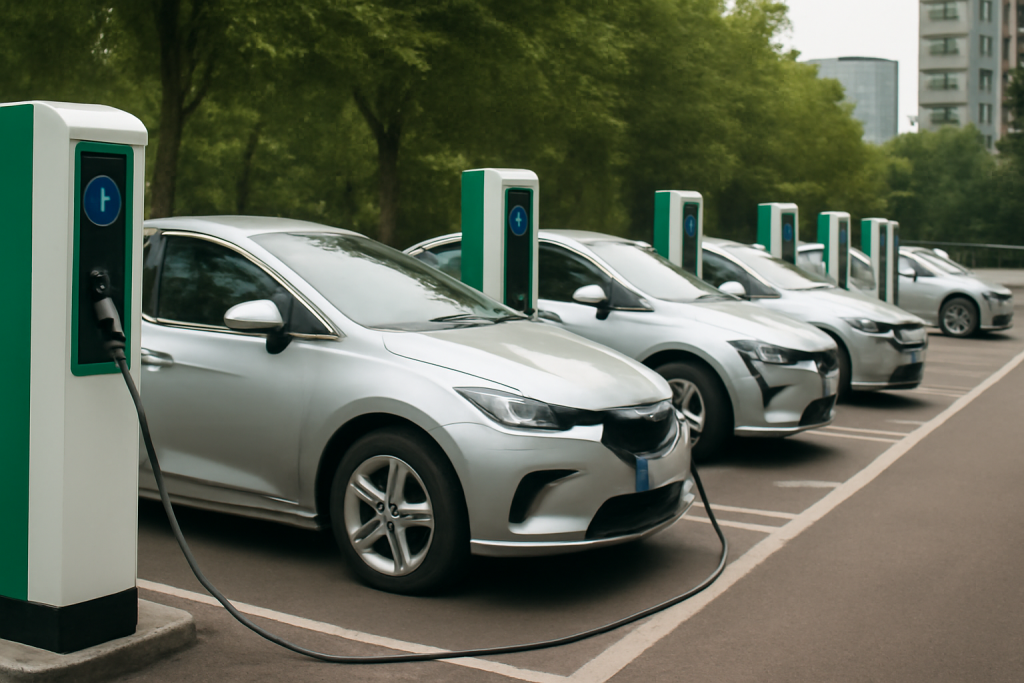
As electric vehicles (EVs) become more mainstream in India, one of the frequently asked questions is, “How Much Does It Cost to Charge an Electric Car?” While home charging is cost-effective, fast chargers, particularly DC chargers, provide quicker solutions but come with a significantly higher price tag.
Fast chargers can charge an EV much faster than home chargers, often taking just 30 to 60 minutes for a full charge. In contrast, home chargers typically take several hours. However, the Electric Car Charging Cost at fast chargers varies widely across India. On average, the cost of using a DC fast charger ranges between ₹15 to ₹25 per kWh, depending on the location and service provider.
For example, if you are charging a 30 kWh battery at a fast charger costing ₹20 per kWh, a full charge would set you back ₹600. This is a stark contrast to home charging, where the same battery might cost you around ₹240 for a full charge, making fast charging approximately 2.5 times more expensive than charging at home.
Additional Costs of Charging Outside:
- Typical Cost at Public Fast Chargers: Many public fast charging stations charge around ₹20 to ₹25 per kWh. Some networks, like Tata Power and Fortum, offer slightly varying rates, with certain networks offering discounts for members or specific locations like highways.
- Subscription Models: Some fast charging stations offer subscription-based models, reducing per-charge costs in exchange for an upfront fee.
Pros and Cons of Charging at DC Fast Chargers:
Pros:
- Quick Charging: Fast chargers can fully charge most EVs in 30-60 minutes, making them a convenient option for road trips or quick stops.
- Widespread Availability: DC fast chargers are increasingly being installed along major highways, providing accessible options for long-distance EV owners.
Cons:
- Higher Cost: The Electric Car Charging Cost is substantially higher compared to home charging, making frequent use of fast chargers more expensive in the long run.
- Battery Longevity: Frequent use of DC fast charging can lead to quicker battery degradation. Fast charging generates more heat, which over time can reduce the efficiency and lifespan of the EV’s battery.
- Reliability Issues: Not all fast chargers are reliable or consistently available. Issues like malfunctioning chargers or unavailable ports during peak hours can cause delays and inconvenience. Furthermore, in rural or less-developed areas, fast chargers may be sparse, limiting accessibility.
- Limited Availability: In some areas, particularly in tier-2 and tier-3 cities, fast chargers might be limited or difficult to find, affecting convenience.
While fast charging is an essential tool for EV owners needing a quick recharge on the go, it’s not without its drawbacks. The Electric Car Charging Cost at fast chargers is higher compared to home charging, and frequent use can impact the long-term health of your battery. For everyday use, home charging remains the most cost-effective and convenient option. However, fast chargers are invaluable for long trips or emergencies, offering speed and convenience at a premium cost.
Standard Charging vs Fast Charging
When considering an electric vehicle (EV), one of the most common questions is “How Much Does It Cost to Charge an Electric Car?” The answer depends largely on whether you are using standard charging or fast charging. Both methods have their unique benefits, but they also come with distinct trade-offs in terms of cost, time, and battery health.
Here’s a breakdown of the Electric Car Charging Cost and efficiency between the two charging methods:
| Charging Type | Pros | Cons |
|---|---|---|
| Standard Charging | – Lower cost: Typically cheaper, with costs around ₹8-₹10 per kWh. | – Slower charging: Takes several hours to charge fully. |
| – Battery longevity: Less stress on the battery, enhancing lifespan. | – Limited convenience: Requires overnight charging at home. | |
| – Cost-effective for daily use: Best for daily commuting needs. | – Requires a dedicated space: Suitable only if you have a home charger. | |
| Fast Charging | – Quick charging: Can charge your EV up to 80% in 30-60 minutes. | – Higher cost: Typically ₹15-₹25 per kWh, significantly more expensive than standard charging. |
| – Convenient for long trips: Ideal for charging on the go. | – Battery degradation: Frequent use may reduce battery life over time. | |
| – Widespread availability: Often found along highways and urban areas. | – Potential unavailability: Not always accessible, especially in rural areas. |
In conclusion, standard charging is best for everyday use, offering affordability and long-term battery health, while fast charging is perfect for urgent needs, but comes at a higher cost and can impact battery longevity. The choice between the two methods depends on your driving habits and charging requirements.
Conclusion
In the end, the question “How Much Does It Cost to Charge an Electric Car?” largely depends on your charging habits and choice of method. Whether opting for the more economical standard charging or the faster but pricier fast charging, each has its own set of benefits and drawbacks. Electric Car Charging Cost can add up over time, but with proper planning and understanding of the costs involved, EV ownership remains a cost-effective and eco-friendly option. Ultimately, choosing the right charging method hinges on convenience, speed, and long-term savings.
